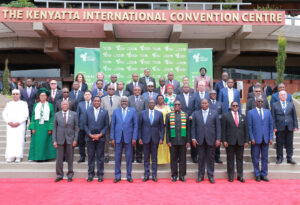In the last few days, I found myself in multiple high-level sessions discussing the implications of the Finance Bill 2024 on my industry. As a tree grower, I squeezed myself deep into the thorny economic terrains and, in the spirit of simplicity, attempted to demystify the complex financial processes, much like pruning a bush for better growth.
I started with a simple breakdown of the proposals, which largely seek to steer Kenya through some of the most challenging economic waters. However, I realized that understanding the proposed legislation can be as daunting as interpreting the language of the leaves. In essence, the bill aims to adjust tax rates, introduce new levies, and modify fiscal policies to increase government revenue. For tree growers like me, this means adjustments in daily expenses and business operations, influencing everything from the cost of commodities to the taxes on income.
This year, Kenya grapples with a budget that highlights stark economic realities. Our debt repayment stands at a staggering Ksh 1.8 trillion. Under the proposals, revenue collections isprojected at Ksh 2.9 trillion based but realistic expectations may adjust this figure to about Ksh 2.4 trillion. This implies that once we allocate funds to our counties, our national coffers are nearly drained—painting a gloomy picture of our financial health.
Please join me as we consider this analogy—imagine Kenya as a vast garden. Currently, more than half of the garden’s resources are used just to quench the thirst of existing plants (debt repayment), leaving little for nurturing new growth (development and social services). In this situation, I would suggest the following solutions.
Firstly, with daily losses to corruption estimated at Ksh 2 billion as previously confessed by the presidency, tackling this vice could significantly bolster our finances. It’s akin to clearing weeds from a garden. Can you imagine if we streamlined our public sector to operate with total integrity? Wouldn’t there be enough for all of us out of our God-given resources? I realize that the savings here are enough to pay the pending bills to suppliers, which currently stand at 800 billion, within a year!
Secondly, we could follow Ghana’s example, which recently took the bold step of defaulting on its debt, a move akin to pruning a severely infested tree to save the rest of the garden. While this has immediate harsh effects, such as loss of investor confidence and economic instability, it offers a reset button on unsustainable financial practices. Of course, here I may be unpopular to my great readers, yet it is a real option on the table.
Thirdly, what about a bold move to restructure our governance? Reducing the number of counties and cutting excessive and luxurious governmental spending, for instance, could make our public wage bill budget leaner, much like pruning unnecessary branches ensures a tree’s health.
Finally, when challenges seem beyond human remedy, prayer can provide solace and hope, guiding us through our economic difficulties. I know this, too, is an unpopular view, but I believe in the power of prayer, not as a substitute for great planning and execution but rather as the fuel that makes implementation possible.
As we navigate the complexities of budgets and fiscal policies, we must focus on ensuring that every Kenyan can lead a green life, akin to every tree in a garden contributing to the whole ecosystem. Although I am not a financial expert but a dedicated tree grower, I am convinced that the principles of growth, sustainability, and pruning are equally applicable to our current economic challenge.
Let’s earnestly discuss our economic strategies, recognizing that our decisions today will sculpt the health of our national garden for the future. We must tread carefully with untested methods, as time lost cannot be reclaimed. As stewards of this land, we must diligently cultivate our nation to ensure it flourishes for coming generations. Let’s be forthright—think green, act green.



